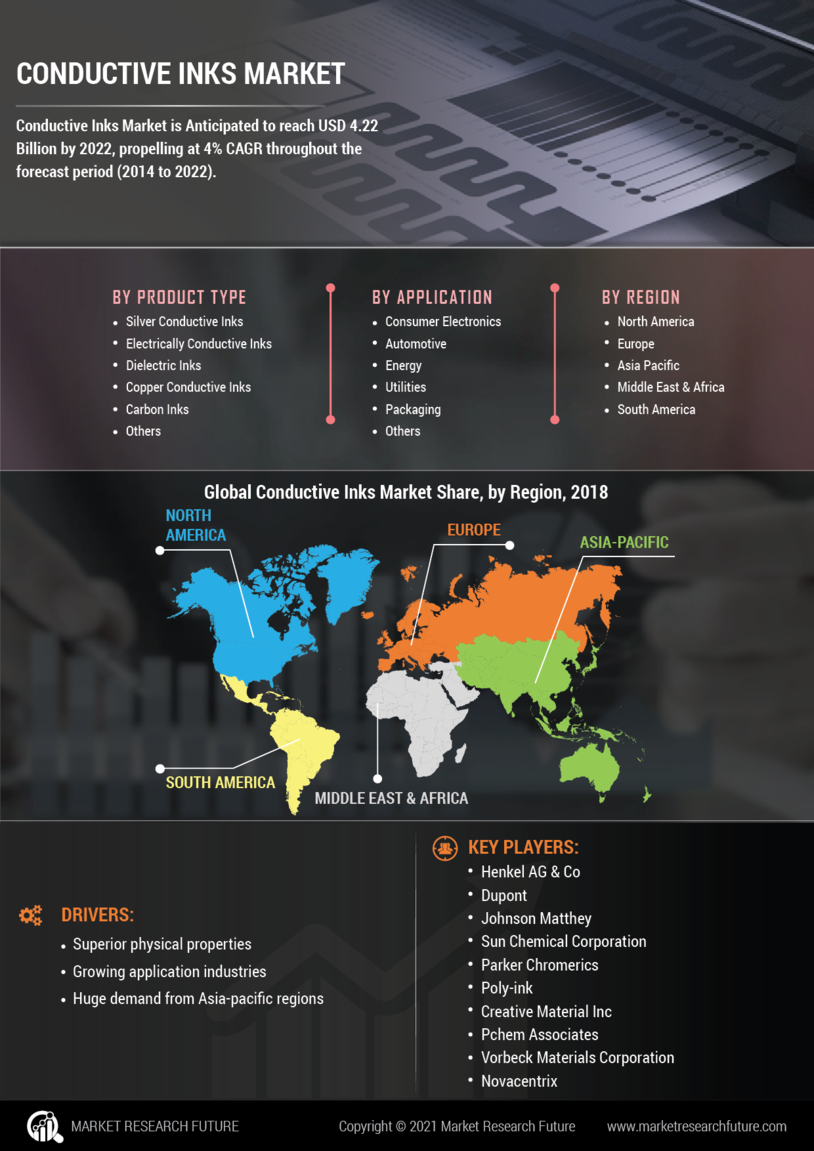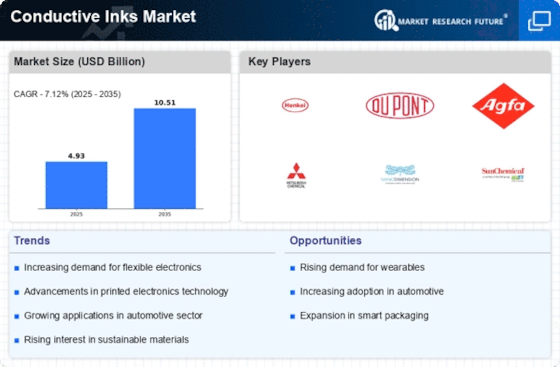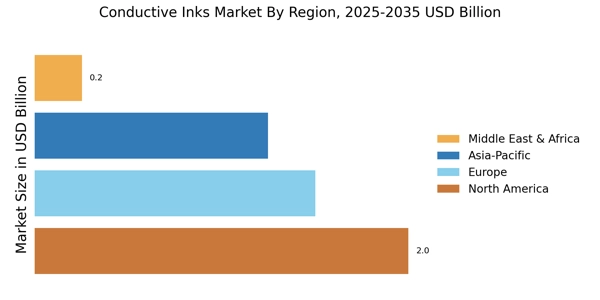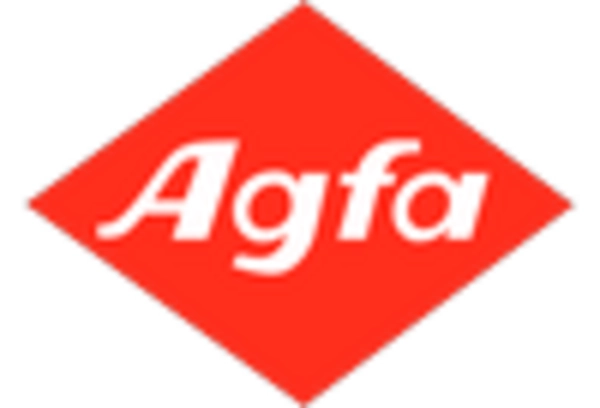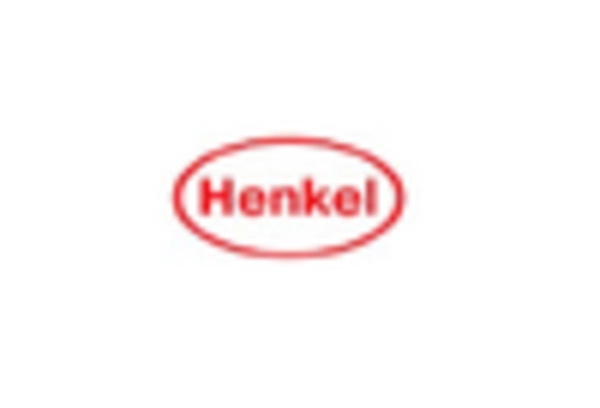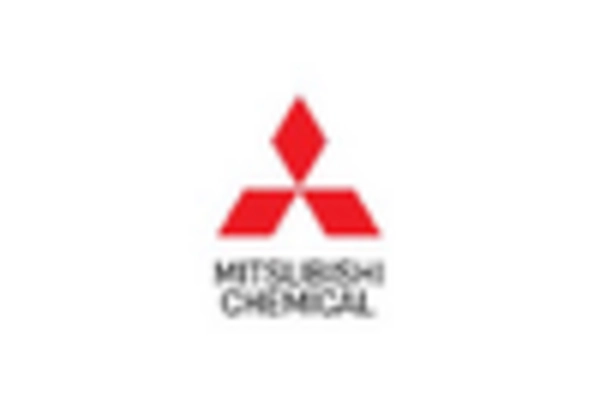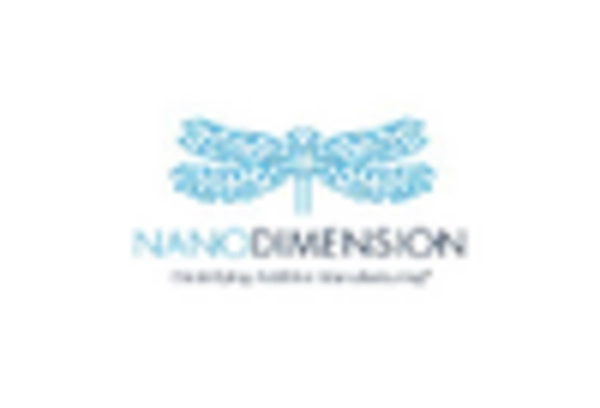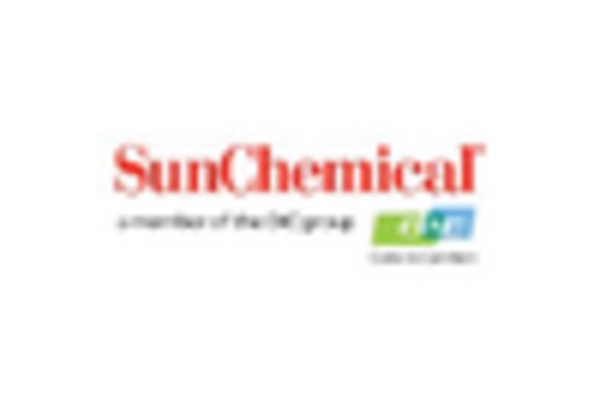Increased Investment in R&D
Increased investment in research and development is a significant driver for the Conductive Inks Market. Companies are recognizing the potential of conductive inks in various applications and are allocating substantial resources to innovate and improve their products. This trend is evident in the rising number of patents filed related to conductive ink technologies, which indicates a growing interest in this field. Furthermore, government initiatives aimed at promoting advanced manufacturing technologies are likely to bolster R&D efforts. As a result, the Conductive Inks Market is expected to benefit from enhanced product offerings and improved performance characteristics, which could lead to broader adoption across multiple sectors.
Growth in Printed Electronics
The expansion of printed electronics is significantly influencing the Conductive Inks Market. Printed electronics, which utilize printing techniques to create electronic devices, are gaining traction due to their cost-effectiveness and scalability. The market for printed electronics is expected to surpass 30 billion USD by 2025, driven by applications in packaging, sensors, and displays. Conductive inks play a crucial role in this sector, as they are integral to the printing process, enabling the creation of circuits and components on various substrates. This growth in printed electronics not only enhances the demand for conductive inks but also fosters innovation in the Conductive Inks Market, as manufacturers strive to develop inks with improved performance characteristics.
Advancements in Material Science
Advancements in material science are propelling the Conductive Inks Market forward. Researchers are continuously exploring new formulations and compositions that enhance the performance of conductive inks. Innovations such as silver nanowires and carbon nanotubes are being integrated into ink formulations, resulting in inks that offer superior conductivity and flexibility. The market for advanced conductive inks is anticipated to grow at a compound annual growth rate of over 10% through the next few years. These advancements not only improve the functionality of conductive inks but also expand their applicability across various industries, including automotive, healthcare, and consumer electronics, thereby driving the overall growth of the Conductive Inks Market.
Emerging Applications in Healthcare
Emerging applications in healthcare are creating new opportunities for the Conductive Inks Market. The integration of conductive inks in medical devices, such as biosensors and diagnostic tools, is becoming increasingly prevalent. These inks enable the development of devices that are not only efficient but also cost-effective. The healthcare sector is projected to invest heavily in innovative technologies, with the market for medical sensors expected to reach 20 billion USD by 2027. Conductive inks are essential in this context, as they facilitate the creation of sensitive and accurate diagnostic devices. This growing intersection of healthcare and conductive inks is likely to drive demand and innovation within the Conductive Inks Market.
Rising Demand for Flexible Electronics
The increasing demand for flexible electronics is a pivotal driver for the Conductive Inks Market. As consumer electronics evolve, manufacturers are seeking materials that can be integrated into flexible substrates. This trend is particularly evident in sectors such as wearables and smart textiles, where traditional wiring is impractical. The market for flexible electronics is projected to reach approximately 50 billion USD by 2026, indicating a robust growth trajectory. Conductive inks, with their ability to maintain conductivity while being applied to flexible surfaces, are becoming essential. This shift towards flexibility not only enhances product design but also opens new avenues for innovation in the Conductive Inks Market.
